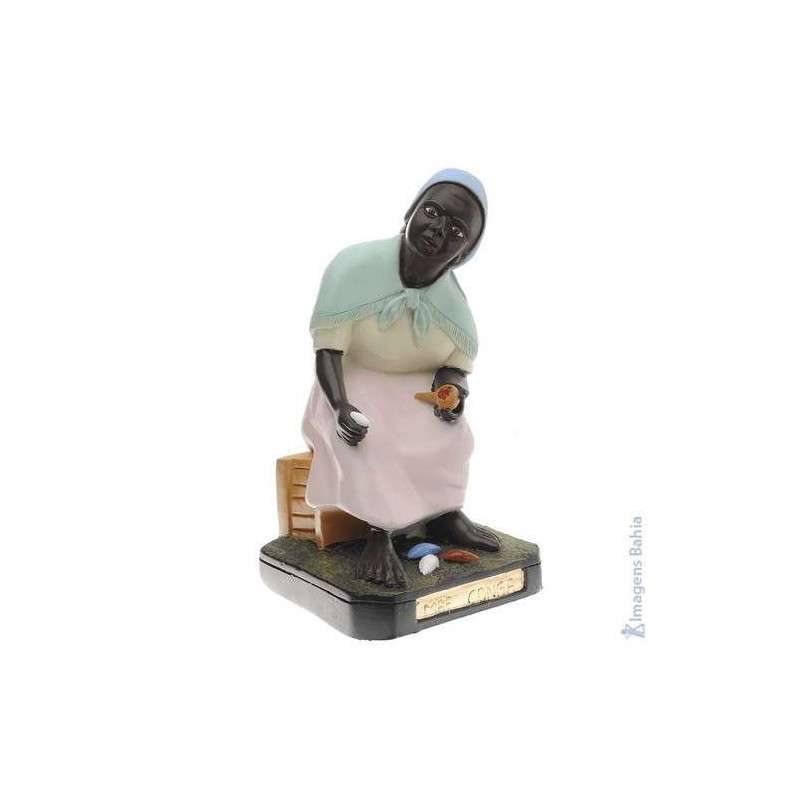- Out-of-Stock



Image of Mãe Conga
Material: Hand-painted plaster.
Size: Approximately 20 cm tall.

Security policy

Delivery policy
Maria Conga is a disembodied spirit (preta-velha) who incorporates mediums within Umbanda rituals. Scenes of exhausting work on sugarcane plantations. This is what Vovó Maria Conga seems to be constantly involved in. She likes sweets, white coconut in particular, but does not show that this was her main occupation in her incarnation as a slave. Sitting on a wooden stump in the yard, she once told some facts about her life in Brazil. She started by saying that just being able to live with our children is a great gift. At that time, black women were destined, among other things, to procreate, to generate children who were taken away from them very early, even before they were weaned.
Other black women fed their young, just as so many other young were fed by Mother Conga. Almost all slave women became mothers; they took care of the children who arrived at the farm, praying that their own children would also find solace wherever they were. African deities played a fundamental role at this time. Different African nations that used to fight were forced to unite in the defense of the race and all the orixás started to work for all the black people. Mothers became aware of the fate of their children through messages from the orixás.
It was they who asked for offerings in difficult times and it was to them that everyone turned to ward off pain. Maria Conga had to use some mirongas to stop being a breeder, and so, because she was still a strong woman, she was left with the sugarcane plantation. Harvesting was always a reason for a lot of work and a kind of hubbub permeated the place.
While the women cut the sugarcane, the children, in total agitation, arranged the bales for the men to carry them to the place indicated by the overseer. It was on one of these occasions that Maria Conga learned that one of her sons, who had been taken away from her when he already knew how to walk and talk, was a strong man, working on a nearby farm. Her heart overflowed with joy and nothing could dissuade her from the idea of seeing him again. She then began to escape from the farm, running from sunrise to sunset, to admire the beauty of that black fort. The first few times she had no way of talking to him, but the orixás heard her pleas and it didn't take long for the two to embrace and shed the tears that had been held back for so long.
It seemed to her that they had never been apart, for love had held them together for all time. One afternoon, almost arriving at the slave quarters, the black woman was discovered. She was beaten a lot, but she didn't fail to escape again to find her son. Once again the whites caught her in flight, and as she still insisted a third time, they decided to end the matter: they burned her right leg, a little above the shin, so that she could no longer run. Unable to see her son, with less capacity for work, Vó Maria Conga began to take care of black children and their patients. Her heart was filled with sadness when she learned that her son had been killed when she tried to run away to see her.
Her life has changed. She went from being cheerful and chatty to being very serious, taking care of what she said even with the other blacks. To the children she told stories of black kings in black lands, where there was no other lord. Wise, experienced and silent, Grandma Maria Conga passed away. With tears in her soul she ended her tale. She said that she only understood the measure of love after her death. Her son was waiting for her smiling, the guardian who had been his mother's the whole time she was waiting for her return to the spirit world.